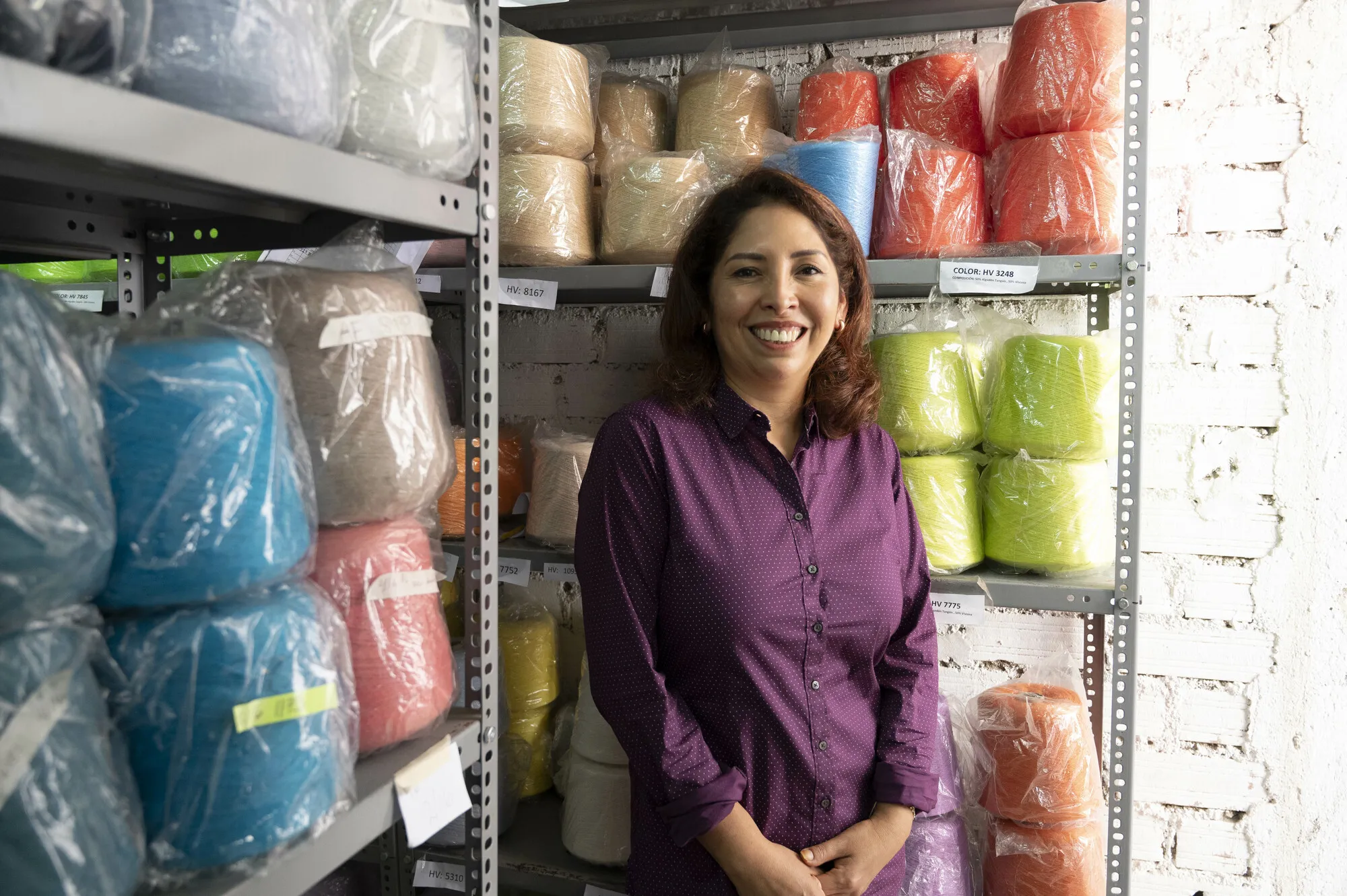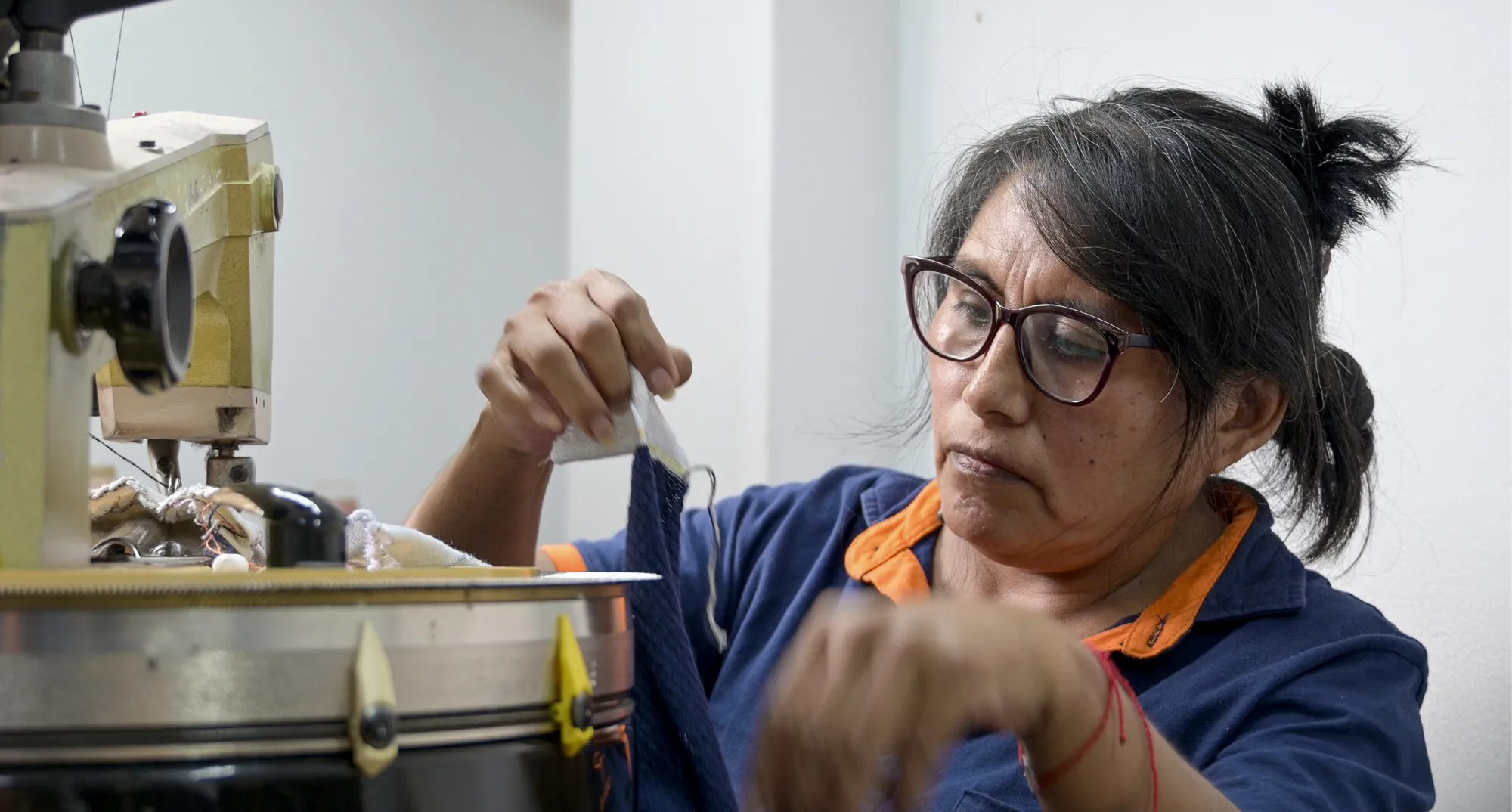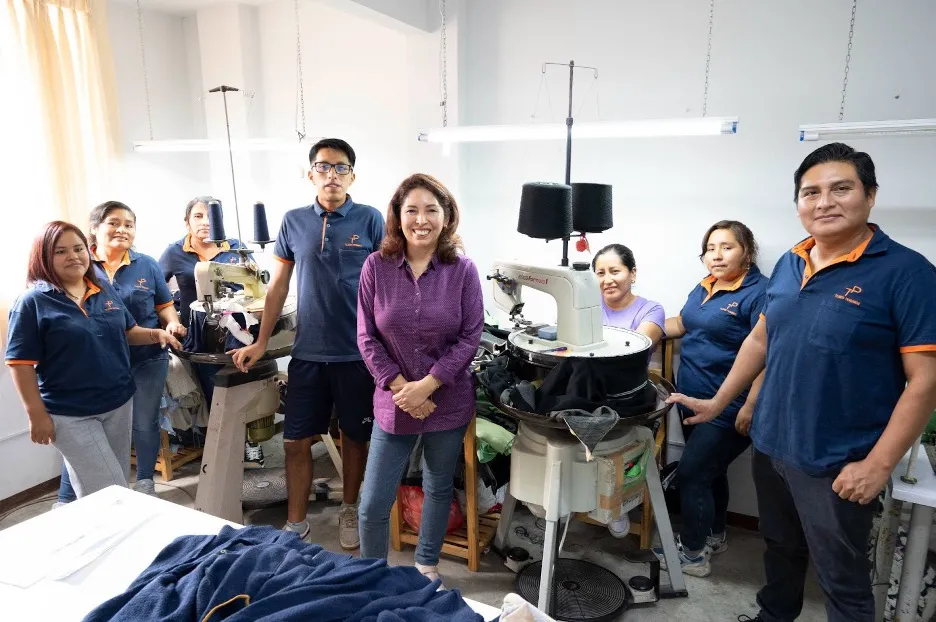Eighteen years ago, Violeta’s business started with one, solitary Singer sewing machine.
In Peru, it’s common for banks to require men as co-signers on loans, even loans for women-owned businesses. Fortunately, Violeta’s husband, Pedro, trusted her vision and took out not only the first loan, but each subsequent loan.
“From the first moment we bought the first machine, he said, ‘Have this, love, here you go, I trust you,’” Violeta says.
She calls him her strategic partner and her “angel.”
Adding new machines one at a time, while training women to operate them, Violeta’s vision grew from reselling pre-made garments to making her own. Throughout the growth of her business, she needed Pedro to believe in her enough to take out new loans and continue to invest in the growth of her business, a situation that many women in Peru do not have.
Without a banking history, as a woman entrepreneur, it would have been impossible for Violeta to get the loans that made her business possible.
This is exactly what CARE’s programming has set out to change. If policymakers prioritized investments in women’s economic power, the global economy could grow by an additional 7 percent, or $10 trillion, by 2030.
Which is why, over the past five years, CARE’s partnership with the Mastercard Center for Inclusive Growth has supported more than 150,000 entrepreneurs worldwide with loans, critical support services, and training.
The Ignite program specifically has already unlocked $154.9 million in loans from an initial grant of $5.26 million. The results have been astonishing. 79 percent of female program participants increased their sales, and 89 percent reported an increased confidence in running the business.





